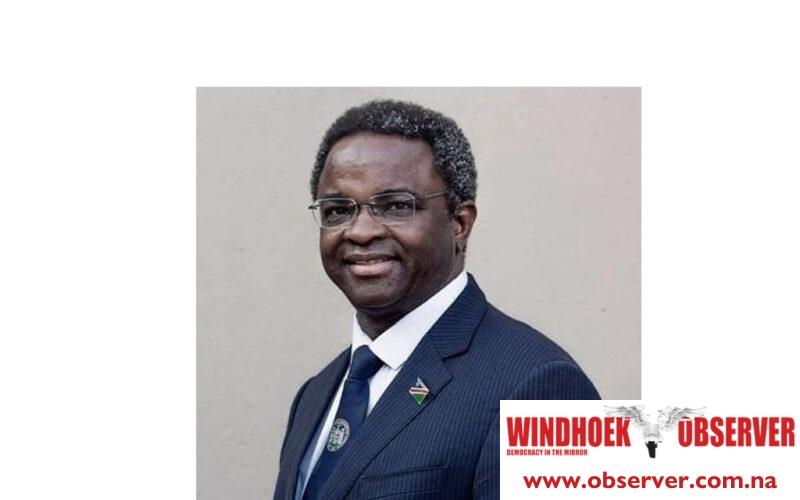Allexer Namundjembo
Political analysts have raised concerns about the Independent Patriots for Change (IPC)’s decision not to designate a leader of the official opposition in Parliament.
The analysts warned that the move may weaken the party’s coordination and effectiveness in the National Assembly.
Political analyst Ndumba Kamwanyah said the absence of a clear leader in Parliament could leave IPC Members of Parliament without guidance.
“The party leader usually helps set the direction, and without that leadership, MPs may struggle to stay united or focused on the party’s goals. They could also feel lost or unsure about how to act in key moments,” Kamwanyah said.
He noted that relying solely on the Chief Whip may not be sufficient, as the role is focused more on maintaining discipline than providing strategic direction.
“Without a leader, the party might lose its voice on important topics, and its MPs could find it more difficult to push for their views in Parliament,” Kamwanyah explained.
Political analyst Sackaria Johannes said the decision comes with both positive and negative implications.
He pointed out that party leader Panduleni Itula, by staying outside Parliament, now has space to evaluate the performance of the IPC MPs.
“He (Itula) now has an opportunity to see who is working hard in parliament and who is not. It is a good opportunity to assess the participation of members,” Johannes said.
He added that because IPC is a relatively young party, its MPs lack parliamentary experience and would benefit from having direct leadership.
“Look at what happened during the day of budget tabling. They appeared to be needing assistance and a clear direction from their leader,” Johannes added.
Johannes also suggested that if the party does eventually name a parliamentary leader, that individual should have the same level of public influence as Itula.
Political analyst Rui Tyitende said Itula’s decision is rooted in his long-standing ambition to become state president.
“Since 2019, Itula has always dreamed of becoming Namibia’s president, and that dream has been shattered more than once. For him, it is the state presidency or nothing,” Tyitende said.
He criticised Itula’s constitutional interpretation, which he said wrongly assumes a candidate cannot run for both the presidency and a parliamentary seat.
Tyitende believes the party’s reluctance to designate a parliamentary leader is intended to prevent a scenario where power appears divided between Itula and a figure in the National Assembly.
“Itula is the Ayatollah (supreme leader) of IPC and cannot afford to share power symbolically or literally,” Tyitende said.
He added that beyond legal concerns, it is the party’s leadership style—driven by personality rather than structure—that prevents IPC from naming a leader in the National Assembly.
“If Itula were in the National Assembly, would he still have declined the title?” Tyitende asked.
Despite these concerns, IPC has moved ahead with forming a shadow cabinet for the 2025–2030 period.
Itula will serve as the shadow president, with Christine !Aochamus as shadow prime minister.
IPC leader Panduleni Itula will serve as shadow president and Christine Aochamus as prime minister in the IPC’s shadow cabinet for 2025–2030.
The party named 14 shadow ministers and six deputies. Key appointments include Aloisius Kangulu for defence (deputised by Isra Kanyemba), Imms Nashinge for home affairs (with Vilho Ihemba as deputy), Rodney Cloete for international relations, Michael Mwashindange for finance and social grants, and Bertha Nghifikwa for education (deputised by Abed Nghishoono). Other appointees include Lilani Brinkman for health, Rodrick Likando for environment and tourism, John Mauton for ICT, and Elvis Lizazi for justice.
During the announcement, Itula addressed the ongoing debate about the Leader of the Official Opposition’s role.
He argued that the position is unconstitutional and lacks legal grounding.
“Instead of the office existing first and the Act assigning a pay grade to it, the executive attempted to use the Act’s framework to give substance to an office that had no prior legal foundation,” said Itula.
He stated that the Electoral Act does not require the IPC to designate a parliamentary leader and that the position has not been gazetted.
“There is nowhere in the Electoral Act that requests the IPC to designate anyone as the leader of the list in Parliament,” he said.
He said IPC MPs would operate as an accountability committee and use the shadow cabinet to monitor government performance.
He criticised the funding of the opposition leader’s office, questioning the transparency of its budget and the legal basis for its existence.
Itula called for either proper legislation to establish the office or its complete removal.
He also proposed a review of the benefits attached to the role and a public inquiry into the 2017 proclamation that operationalised the office.




